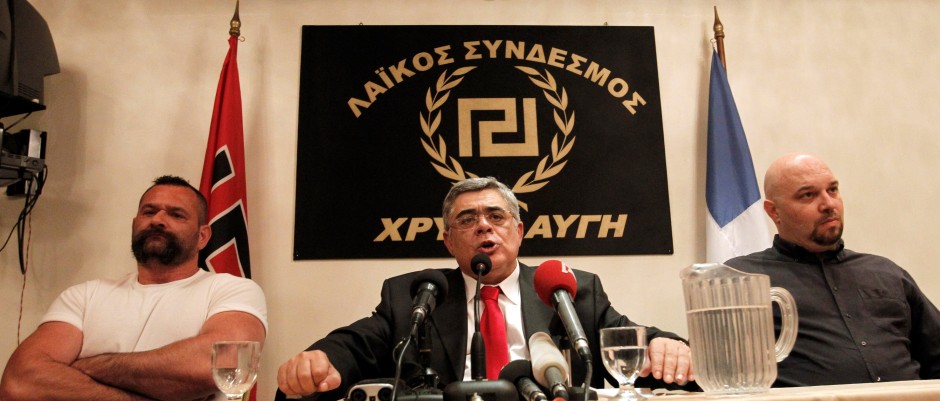Shortly after posting a stunning victory in last month’s European Parliament election, Marine Le Pen, the French politician who leads the National Front, said she hoped to form a far right-wing alliance of like-minded parties in Europe. Tellingly enough, she ruled out joining forces with an ultra nationalist Greek party that, she believes, has embraced antisemitism — Golden Dawn.
Le Pen’s decision to ostracize this openly xenophobic and racist party occurred eight months after the Greek government cracked down on Golden Dawn following an incident in which one of its supporters murdered Pavlos Fyssas, a 34-year-old hip-hop artist and anti-fascist activist.
Accusing Golden Dawn of being a “criminal organization,” the government of Prime Minister Antonis Samaras arrested its leader, Nikos Michaloliakos, and several of its senior officials. They remain in custody.
Last week, magistrates ordered the pre-trial detention of Nikos Kouzilos, who ran for mayor in the port of Piraeus under the banner of Golden Dawn. Simos Kedikoglu, a Greek government spokesman, said that he and his fellow detainees face “extremely heavy charges.”
No date for their trial has yet been set.
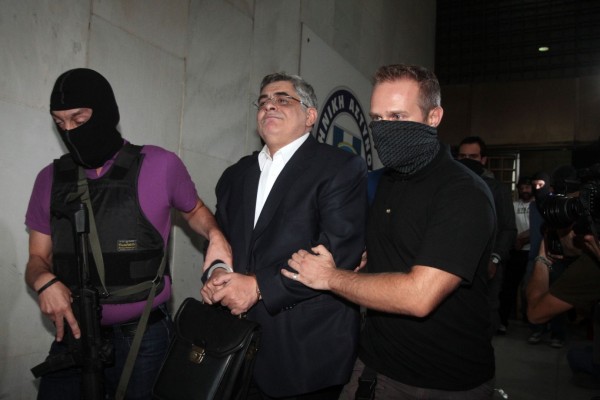
Parliament, too, has taken action against Golden Dawn. Last December, by a margin of 241-26, it voted to suspend state funding to Golden Dawn.
Described by some observers as a neo-Nazi party, Golden Dawn was an obscure party until 2012, when it won 18 seats in the 300-seat parliament, making it the third most popular party in Greece.
Campaigning on a strict anti-immigrant platform, it tapped into widespread anger over a severe austerity program the government has been forced to adopt to stave off bankruptcy and over the flow of non-white immigrants and refugees into Greece in recent years.
But there’s little doubt that Golden Dawn also appeals to the base instincts of ethnocentric voters. According to a global survey on antisemitism conducted by the Anti-Defamation League and released in May, 69 percent of Greeks subscribe to anti-Jewish myths and stereotypes, the highest rate in Europe.
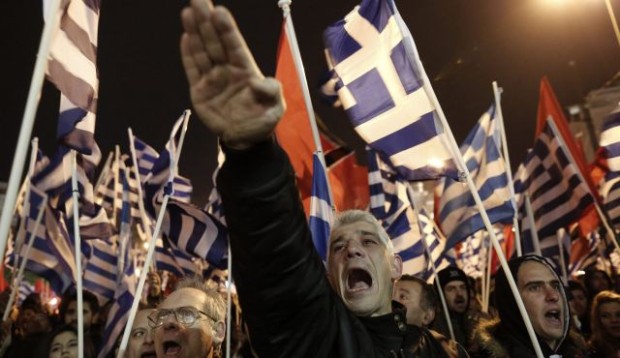
If nothing else, Golden Dawn is staunchly authoritarian, its leaders having expressed admiration for Ioannis Metaxas, who ruled Greece with an iron fist from 1936 until his death in 1941. Modelling his regime after fascist Italy, he banned political parties and muzzled the media through censorship.
Still more worrisome, Golden Dawn’s leadership, from Michaloilakos on down, has glorified Adolf Hitler — whose army invaded Greece and subjected its population to a brutal occupation — and questioned the veracity of the Holocaust.
In 2010, Golden Dawn spokesman Ilias Kasidiaris described Hitler as a “great social reformer” and a “military genius.” In 2012, in a speech in parliament, he read excerpts from the Protocols of the Elders of Zion, a notorious antisemitic tract concocted by imperial Russian government officials.
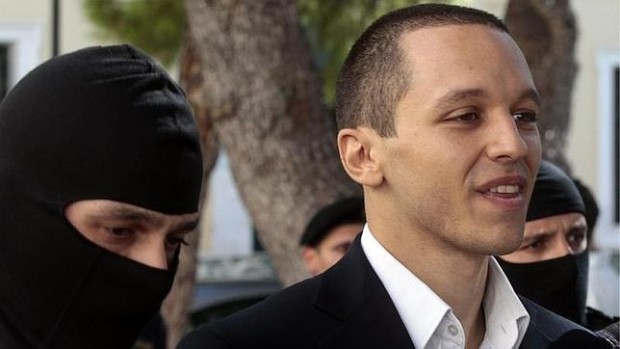
Ilias Panagiotaros, a Golden Dawn parliamentarian, recently called Hitler a “great personality.”
Michaloilakos, who claims he is not a neo-Nazi, has denied the existence of gas chambers and crematoria in Nazi concentration camps. And in an interview on the Skai television channel, he accused the station of “taking orders from international Zionism,” a well-worn code word for Jews.
Earlier this year, fascist and Nazi memorabilia was found in the home of a Golden Dawn leader.
Panagiotaros denies his party is neo-Nazi. “We are Greek nationalists,” he said recently. Nor is Golden Dawn racist, he claims, saying it opposes illegal and legal immigration due to Greece’s Depression-level unemployment rate. However, he admits that overzealous supporters have resorted to violence to intimidate refugees, something he does not condone.
Such rationalizations do not impress David Saltiel, a Jewish community leader who believes that Golden Dawn is “a Nazi party of killers.”
Despite efforts by the government to delegitimize or cripple Golden Dawn, it has fared relatively well of late. In municipal elections in May, it captured 16 percent of the vote in Athens. And in the European Parliament election, it won nine percent of the Greek vote. In both instances, observers say, Golden Dawn appealed in large part to voters fed up with the current economic crisis and with the system itself.
It’s clear that Golden Dawn is capitalizing on the hard times that have traumatized Greeks.
In an attempt to draw voters away from Golden Dawn, Samaras’ right-of-center New Democracy party has adopted some of its anti-immigration rhetoric. After declaring that city centres in Greece had to be “reclaimed” from migrants, the party’s candidate for the mayoralty of Athens came out against plans to build a mosque in the city, saying it would be a “magnet for illegal immigration.”
And in another measure widely regarded as an attempt to pander to the extreme right, Samaras reshuffled his cabinet and appointed Makis Voridis as health minister. Voridis, a radical nationalist who has apparently belittled the truthfulness of Anne Frank’s diary, has been accused of being an antisemite.
In a meeting with Abraham Foxman, the director of the Anti-Defamation League, Samaras disputed the allegation that Voridis is antisemitic, but promised to examine his file.
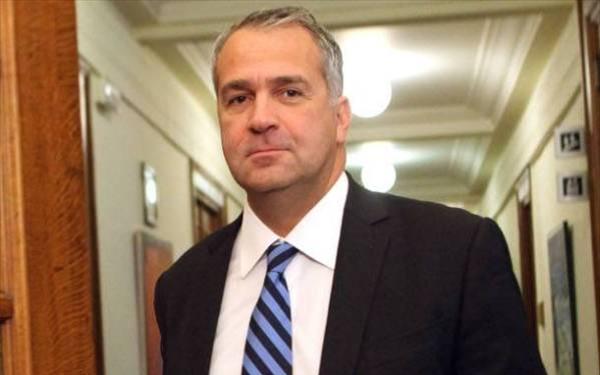
By all accounts, Voridis has disavowed his former views. In a letter sent recently to the Central Board of Jewish Communities in Greece, he condemned antisemitism and excoriated “race prejudice” as “an outright violation of human dignity.”
Victor Eliezer, the secretary general of the board, seemed pleased by Voridis’ comments, calling them a “step in the right direction.”
